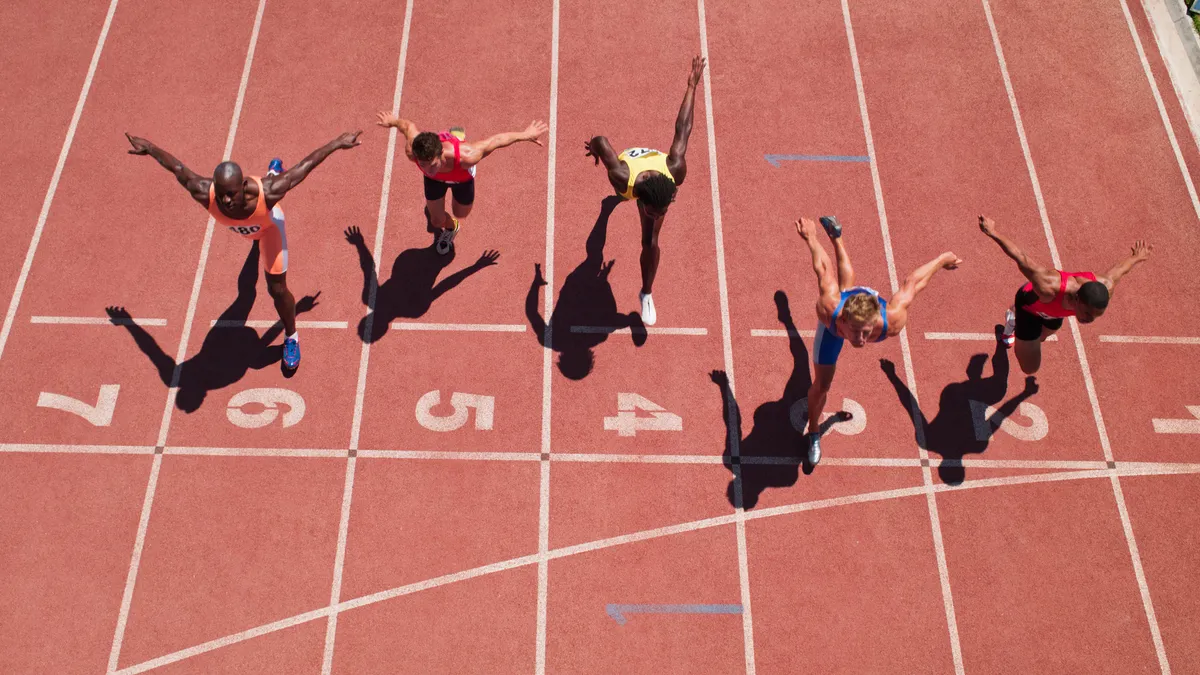Dive Brief:
- A dozen higher ed groups and one college accreditor released a joint statement last week opposing paying college athletes as employees.
- Led by the American Council on Education, the organizations submitted an amicus brief to the 3rd U.S. Circuit Court of Appeals as part of Johnson v. NCAA. The case is meant to decide if Division I student-athletes should be considered college employees based on their participation in interscholastic sports.
- The groups' reasoning follows long-held arguments that college athletes are students first and that intercollegiate athletics are not business ventures.
Dive Insight:
Collegiate sports can be big money makers for colleges and states. In 2021, the NCAA earned $1.15 billion in revenue, the majority of which it distributes back to its member colleges. That figure doesn’t include revenue from highly profitable bowl games in the college football postseason, which are not managed by the NCAA. Several coaches at public colleges and universities rank among their states' highest paid employees.
In Johnson v. NCAA, several athletes who played for their colleges argue their participation in Division I sports should classify them as employees entitled to payment under the Fair Labor Standards Act.
In their brief, the higher ed groups argue that a handful of NCAA teams carry the rest financially and that a majority of college sports teams operate in the red.
“It would make little sense to read the FLSA as treating student-athletes as employees merely because a small fraction plays on teams that are revenue-positive,” the statement read.
The letter-signing organizations are:
- The American Council on Education.
- The American Association of Community Colleges.
- The American Association of State Colleges and Universities.
- The Association of American Universities.
- The Association of Catholic Colleges and Universities.
- The Association of Governing Boards of Universities and Colleges.
- The Association of Jesuit Colleges and Universities.
- The Association of Public and Land-grant Universities.
- The College and University Professional Association for Human Resources.
- The Council for Christian Colleges & Universities.
- The National Association of College and University Business Officers.
- The National Association of Independent Colleges and Universities.
- The Southern Association of Colleges and Schools Commission on Colleges.
A decision in Johnson v. NCAA is expected later this year.
This case is one of the latest high-profile legal battles over paying college athletes.
In November, the College Basketball Players Association, a newly formed advocacy group, filed a complaint against the NCAA with the National Labor Relations Board. The group alleged the NCAA's classification of college athletes as “student-athletes" interfered with workers' rights. Two months prior to the complaint, Jennifer Abruzzo, NLRB’s general counsel, released a memo voicing support for college athletes being recognized as employees in some cases.
A bill currently being considered in California would require the state's public and private colleges to create revenue-sharing agreements to pay their athletes.
Beginning in 2019, states signed laws allowing college players to get paid for sponsorship deals. The NCAA suspended rules prohibiting athletes from selling the rights to their names, images and likenesses in June 2021 after several states passed pro-player NIL laws.














